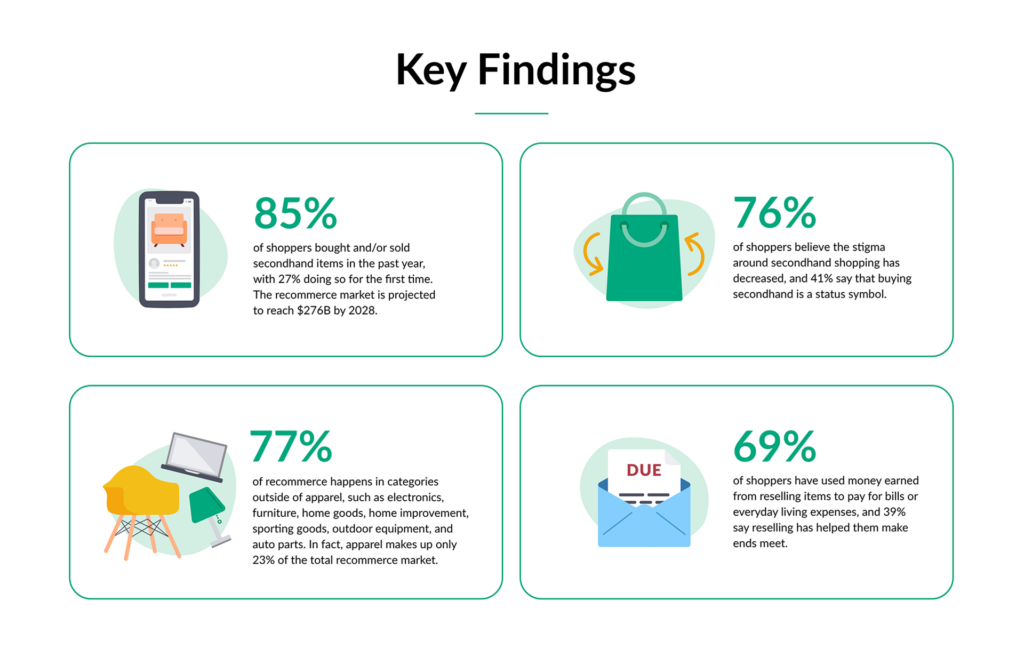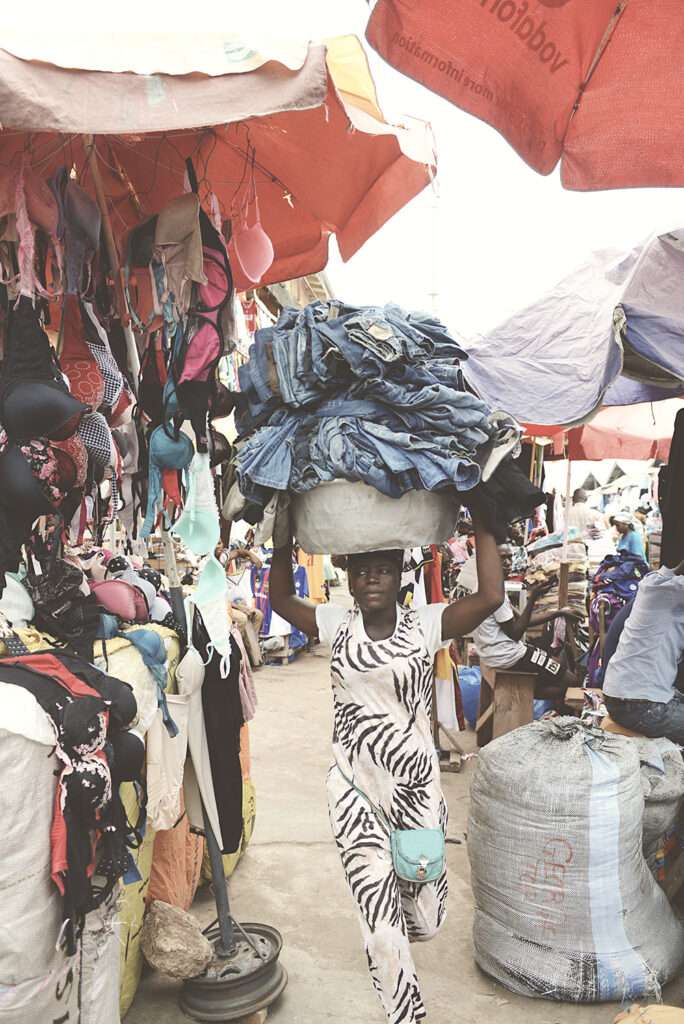The secondhand market’s stigma sheds its old skin as shoppers and sellers flock to resale platforms.
The transformative shift in consumer attitudes toward secondhand shopping is propelling the re-commerce sector to new heights, according to OfferUps’ 2023 Recommerce Report. OfferUp is the largest mobile marketplace for local commerce in the U.S.
Created in collaboration with data analytics firm GlobalData, the report revealed a record-breaking 85 percent of consumers have bought or sold used items, a three percent uptick from the previous year. Notably, 27 percent of these consumers dabbled in the resale market for the first time in the past twelve months.
This emerging trend seems to be driven by a combination of shifting societal perspectives and economic necessity. The study indicated that 76 percent of shoppers have noticed a fading of the negative stigma often linked to secondhand shopping. More than half (55 percent), attributed it to changing attitudes about waste, and nearly as many attributed it to an increase in secondhand options. Secondhand shopping is now also seen as a status symbol by 41 percent of consumers, according to the report.

Recommerce is not limited to just clothing; its influence stretches far beyond into other sectors of retail. Less than a quarter of secondhand sales relate to apparel, while 77 percent encompasses diverse categories like electronics, furniture, and outdoor equipment, among others. The report forecasts that the resale market will continue its upward trajectory, estimated to hit $188.5 billion by the end of this year, and $276 billion by 2028. It’s expected to outperform the general retail market growth by 4.4 percent.
Economic realities are also pushing more people toward secondhand buying and selling. The most prevalent motivations for shopping secondhand include snagging a good deal, sidestepping inflated prices, and maintaining one’s lifestyle without breaking the bank. Moreover, the report highlighted the functional role of resale for many families; 69 percent of people used the revenue from reselling to cover bills and daily living costs. “Reselling has become a lifeline for 39 percent of individuals, helping them make ends meet,” the study said.
‘Go-to destination for buyers and sellers’
Online resale platforms are increasingly becoming the go-to destination for both buyers and sellers, overshadowing traditional retail options. As per the survey, three-quarters of the respondents found such platforms equally or more convenient than standard online shopping outlets. Even more compelling, 47 percent found these platforms more convenient than scouring through social media for items, citing lower costs and a broader range of unique finds as reasons for their preference.
Keeping used items in circulation reduces their environmental impact. According to ThredUp’s recent report, if every consumer bought just one secondhand garment instead of a new one, it would lower CO2 emissions by more than 2 billion pounds this year. That’s the equivalent of taking 76 million cars off the road for one day. It will also save 23 billion gallons of water and 4 billion kilowatt-hours of energy.

The news comes as Ugandan President Yoweri Museveni issued a prohibition on the importation of used clothing earlier this year. Nearly 70 percent of garments donated in Europe and the United States find their way to Africa.
Announced during the inaugural ceremony of nine manufacturing facilities in the Sino-Uganda Mbale Industrial Park, Museveni argued that the influx of second-hand garments stymies the growth of Uganda’s native textile and cotton sectors.
“These are for dead people. When a White person dies, they gather their clothes and send them to Africa,” Museveni said. He says the influx puts pressure on local garment producers. “We have people here who produce new clothes but they cannot infiltrate the market,” he added.
In 2016, the East African Community, of which Uganda is a part, collectively decided to ban the import of used clothes by 2019. But to date, only Rwanda has implemented this restriction.
Related on Ethos:


